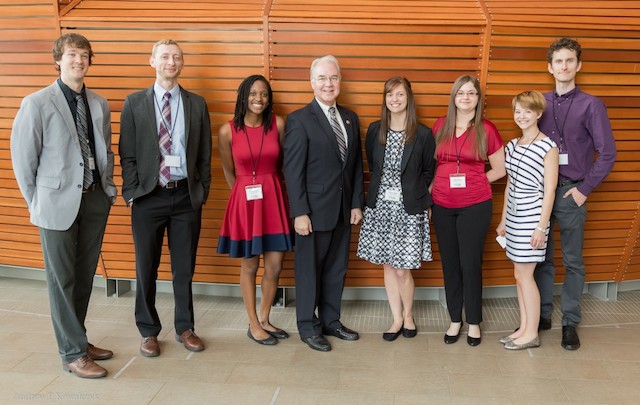Rep. Tom Price (R-GA) expressed support for strong federal funding of scientific and biomedical research in a town-hall-type meeting Wednesday with Emory faculty and students, organized by the graduate student group Emory Science Advocacy Network.
Price tied a major expansion of federal funding for scientific research to reform of entitlements such as Medicare and Social Security (like this). Asked whether he could envision a large increase in the National Institutes of Health budget, comparable to the doubling in funding that occurred in the 1990s, Price replied: “In the near term, I don’t see it.”
However, a “smaller bump,” more along the lines of the $2 billion increase in NIH funding passed by Congress in December, could be more possible, he said.
Price also advocated streamlining the Food and Drug Administration’s approval processes for new antibiotics and medical devices, and giving scientists more discretion in how federal research dollars are allocated.
In a question-and-answer session, Emory ethnobotanist Cassandra Quave urged Price to have Congress give increased attention to the problem of antibiotic resistance, in which some bacterial infections are becoming difficult to treat.
“Yes, we need more resources going into this,” Price said, going on to support a “dual track” approval process for new antibiotics.
Price expressed concerns that the United States’ role as a leader in medical innovation was waning, because of regulatory constraints that drive devices such as heart valves to be tested elsewhere first.
“We’re already losing bright minds,” he said, citing how colleagues from other surgical specialties were visiting other countries to learn new techniques.
Price, who represents parts of Cobb, Dekalb and Fulton counties, was appointed chairman of the House Budget Committee at the end of 2014, replacing Rep. Paul Ryan (R-WI).
Before his election to Congress in 2004, Price was an orthopedic surgeon. He grew up and went to medical school in Michigan, and came to Georgia for his orthopedic surgery residency at Emory. He was an assistant professor at Emory and medical director of the Orthopedic Clinic at Grady Memorial Hospital, while he was a member of the State Senate. Read more






